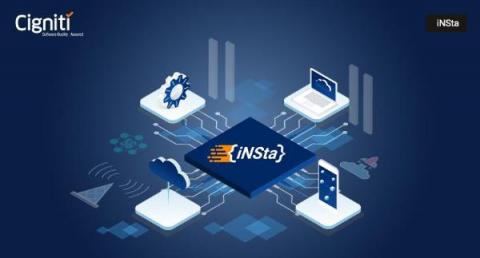Systems | Development | Analytics | API | Testing
Cigniti
SAP EWM: Optimizes Inbound and Outbound Processing of Warehouse Management
The ever-rising competition in the e-commerce business has put unprecedented pressure on companies to maintain seamless supply chains. Globally, companies spend an average of €300 billion every year on warehouse management, either by outsourcing to a third party or managing in-house. Today’s consumers expect instant delivery of products, and to cater to their demands, companies must optimize end-to-end warehouse management.
How NFTs are Reinventing the Digital World
One of the technological evolutions that has caught the attention in recent times is Non-Fungible Tokens (NFTs). It has been a phenomenon, with the values of some of the NFTs reaching astronomical heights. It remains to be seen whether this will be a bubble like the Tulip Mania or the Dot Com bubble, or whether it will mature into a viable technological option.
Different Aspects and Success Factors of ISO 20022 Migration
Different Aspects and Success Factors of ISO 20022 Migration
ISO 20022 is an international standard for exchanging electronic messages between banks and financial institutions. It gives the finance industry a common language and model for sending payment messages and exchanging payment data across the globe. ISO 20022 is an open global standard for financial information. It provides consistent, rich, structured data that can be used for every financial business transaction.
Cigniti Forays Into Digital Engineering Through the Capability-led Acquisition of RoundSqr
The Challenges of Testing Artificial Intelligence (AI)
Our day-to-day lives are becoming increasingly reliant on the direction, decision-making, and support of AI systems. Never in the history of technology has the threat or the need to protect the integrity of such decision-making been more urgent or real. I recently served as an official reviewer for a new BCS pre-publication book titled “Artificial Intelligence and Software Testing – Building systems you can trust”.
Proven Methods and Tool to Migrate SAP ERP HCM to SAP Cloud SF
Some enterprises are vacillating about migrating from on-Premise SAP HCM to cloud-based SAP SuccessFactors. But in the future, they will be forced to switch, as the on-Premise legacy system is not designed to keep up with the pace of the upcoming consumer-driven market. Even SAP’s own announcement about the year 2027 as the deadline for SAP ERP HCM support makes the migration inevitable.
Accelerate the Digital Transformation of Your Healthcare & Life Sciences Organization
iNSta - Scriptless Test Automation for the Modern Enterprise
Test Automation isn’t a new term, however in recent times, with the push for digital transformation across industries, test automation has taken a pivotal stand. Enterprises now aim to get applications to market faster while providing the best-in-class customer experience.











